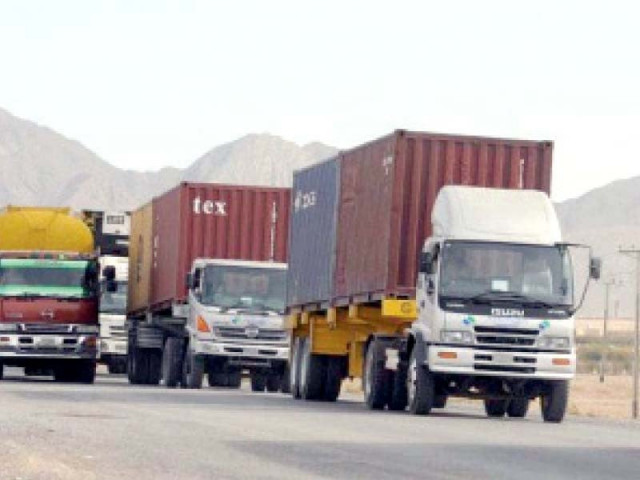Trade strategies to turn a new leaf
New govt should come out with all guns blazing to tackle challenges

As Pakistan enters into a new political era with the upcoming elections, the new government will need to come out with all guns blazing to tackle the surmounting economic challenges.
Pakistan has been in the grip of an economic slowdown as political uncertainty has reduced business and investor confidence in the country. The recent monetary policy statement, published by the State Bank of Pakistan (SBP), highlights the slowdown in the decline in inflation as sizeable adjustments in energy prices have been made in recent months.
The fuel price hike in early February continues to pose challenges as domestic energy prices keep on rising.
Although the statement does note the improvement in foreign exchange reserves of the central bank and the current account surplus reported for December, it also suggests that recent tensions in the Red Sea and the Middle East and the rise in global freight rates may create challenges for Pakistan.
At a time when high inflation is a major concern, the adverse impact on the cost and flow of global trade will add further complexities for the policymakers. The central bank has continued with its tight monetary policy but also expects that its consolidation will help achieve the inflation target of 5-7%.
The new government will have a mountain to climb as it tackles the economic challenges and reduces inflation to the target set by the central bank. A right mix of trade strategies will become ever more crucial.
The balance of payments crisis, which is often exacerbated with the indecision of the government to approach multilateral and bilateral creditors for financial assistance, aggravated the economic conditions.
Import restrictions imposed to curtail the trade deficit led to shortages, raising prices and reducing the level of production in the country, particularly of goods that are heavily dependent on imported inputs.
Although the trade deficit decreased by 43% in FY23 over the value reported in FY22 and by 39% year-on-year in the first seven months of FY24, it did not necessarily alleviate the economic challenges the country was facing. Imports declined by 31% in the same time period, while exports decreased by 13%.
Exports had surpassed $31 billion in FY22 but decreased to $28 billion in FY23. Workers’ remittances also declined in a similar fashion, reducing from $31 billion to $27 billion.
The current account deficit was curtailed due to the reduction in imports, which decreased by approximately $20 billion in the same period.
Furthermore, the government was able to get loans rolled over from both China and the UAE recently, providing some respite as the central bank accumulates the much-needed foreign exchange reserves.
Policymakers will have to reconsider import-related restrictions to revive growth and reduce the rate of inflation. Policies that enhance the development and sustainability of trade networks, both regionally and globally, will be crucial if the economy must turn a new leaf.
Read: Trade deficit shrinks to $13.1b
First, it is essential to ensure that trading relationships are not only reestablished but also expanded. Improved trading relationships across borders will allow firms to not only procure their inputs from the more efficient sources, regionally and globally, but increase consumer welfare through lower prices and increased variety.
Negotiations with the IMF for a future package must include strategies to avoid restrictions on imports.
Second, it is essential for the government to pursue measures to improve trade and customs infrastructure. Electronic Single Window and paperless cross-border trade procedures and processes that reduce the cost and time to trade are essential.
The Pakistan Single Window is an excellent resource to boost the capabilities of trade-related infrastructure and ensure maximum participation of businesses in international trading activities.
Digitalisation processes should also ensure better access to information for smaller businesses that often face barriers due to information asymmetries, which lock them out of potential export markets.
Lowering the cost of shipping and transportation through a more efficient domestic infrastructure, both physical and digital, will become increasingly important if the Middle Eastern crisis prolongs and creates blockades in transportation.
Third, it is imperative to ensure that domestic production and processes meet international standards, particularly those set by our major export market destinations.
For instance, the EU is likely to impose carbon taxes on exports in certain industries in the near future, while several major trading partners are imposing higher quality standards, certification requirements, conformity assessments and product quality testing requirements that could potentially create challenges for the non-compliant exporters.
The government must also push for adopting greener technologies as it not only reduces reliance on imported fossil fuels but also encourages exporters to avail of incentives offered by export destination markets related to using green technology in their production procedures and processes.
Lastly, it is imperative for the policymakers to realise that the balance of payments crisis is due to the lack of productivity and capabilities of our producers. The trade deficit is a symptom of inefficiencies in the economy and restricting imports may only temporarily solve the balance of payments crisis.
It is unlikely to cure the disease, which is caused by low productivity levels and poor capabilities. Hence, the government must instead focus on improving the productivity levels of businesses and providing opportunities to boost their capabilities.
In essence, the new government will need to undertake several measures to improve the economic conditions. Trade strategies must evolve in order to tackle the surmounting challenges.
The writer is the Assistant Professor of Economics and Research Fellow at CBER, Institute of Business Administration, Karachi
Published in The Express Tribune, February 5th, 2024.
Like Business on Facebook, follow @TribuneBiz on Twitter to stay informed and join in the conversation.



















COMMENTS
Comments are moderated and generally will be posted if they are on-topic and not abusive.
For more information, please see our Comments FAQ